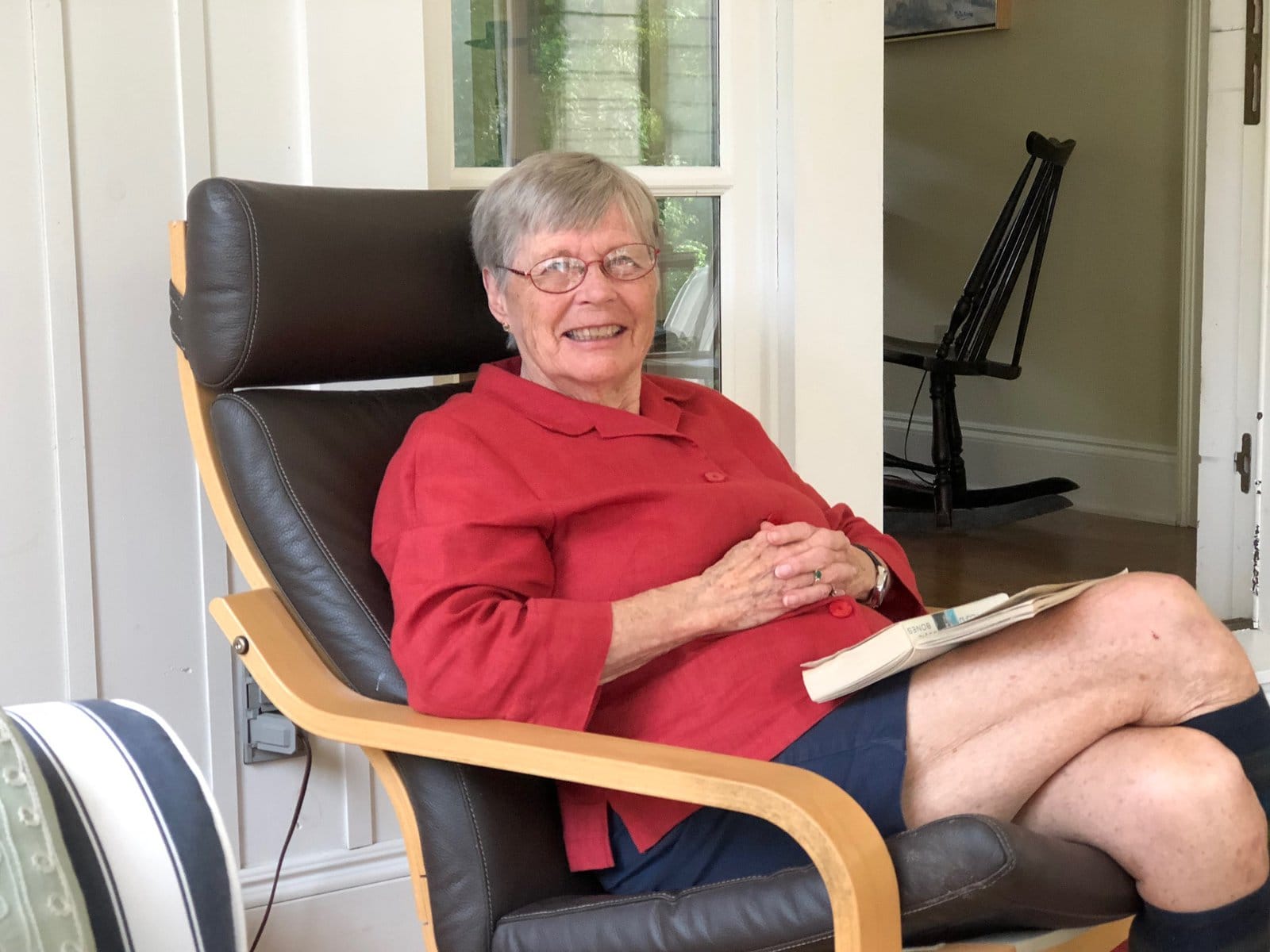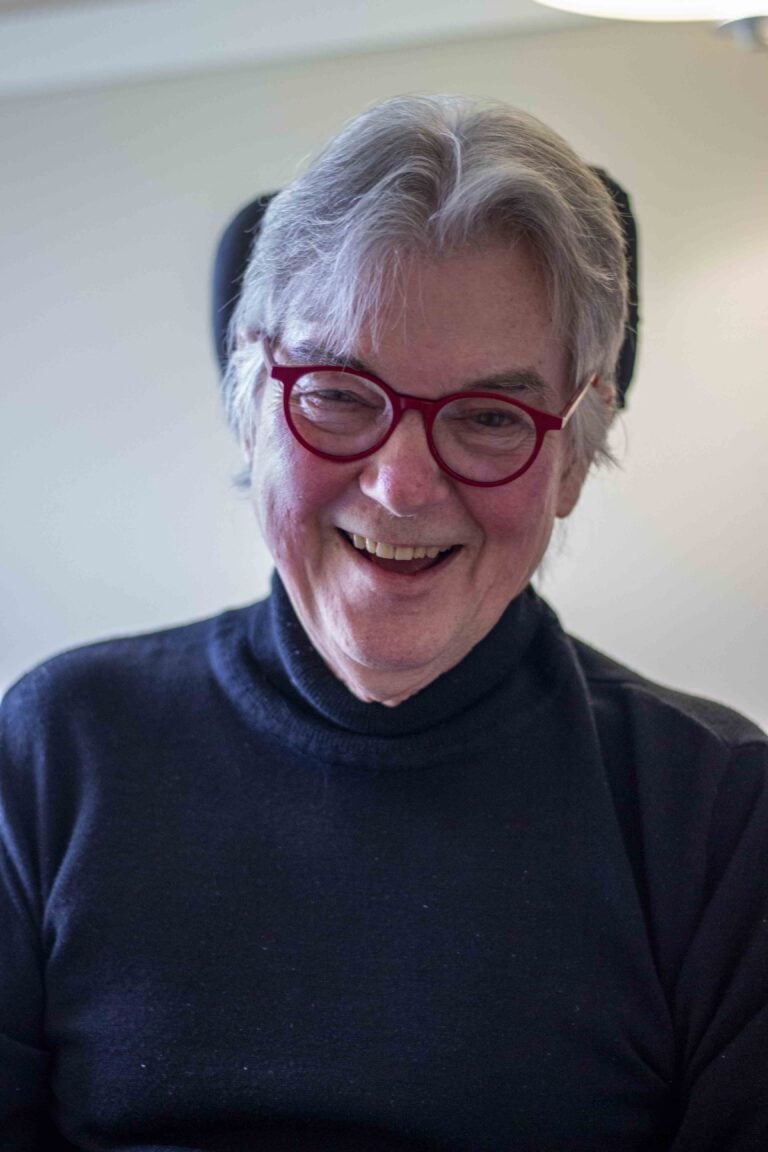On a recent Sunday following the 8:30 a.m. service at St. Mark’s, I visited my wife Jan at Pleasant Manor Radiant Care in Virgil.
After the usual COVID test, I passed Jan’s room and picked up one of her favoUrite stuffed animals. We call him George.
A white furry stuffed rabbit with long floppy ears, a small bun for a tail and a cheery pink nose, George is easy to cuddle.
Jan is in long-term care for dementia: she spent her first three years in Niagara Long-Term Care in NOTL, and for the last six months, she has been at Pleasant Manor.
Over that time her dementia slowly progressed. These days Jan lives very much in the moment, with little memory of her past, although prompted by me, sometimes old memories unexpectedly and briefly flash back.
Going forward, she has no awareness of the future or indeed the next few minutes.
Living in the present, Jan is good company. She has always been a sunny, cheerful person, much like her father before her. That disposition hasn’t changed, although sometimes she’s a little irritable, especially when she doesn’t understand what’s going on.
This particular morning was no different than most visits. When I visited, she was watching a sitcom out of the 1960s while most of her fellow residents sat with their chins on their chest, paying no attention.
I pulled a chair up and as usual Jan’s eyes lit up and she smiled as if I had never left her the day before.
I handed George to her to hold and began to make up stories about him – what he had been up to that morning or was about to do, with the odd comment about his floppy ears, all of which Jan enjoys, even adding her own quips about George, which made both of us laugh.
Then a resident on Jan’s other side reached out to stroke George’s ears. A moment later both women were stroking and playing with George and Jan began to chat to her.
In no time the two women joined hands while sharing George. When I left a half-hour later, they were still joined by George and their hands.
That may not strike readers as unusual but from my observations, friendships, or any meaningful sustaining relationship between residents is unusual, especially in the later stages of dementia when many have lost their social skills and interest.
Despite being surrounded by others at meals and for most activities, residents seem to pay little attention to others seated at the same table.
That social isolation makes matters worse because language skills atrophy, partly because the speech areas may be directly involved in some dementias but also because patients lack the initiative and interest in talking to one another enough to maintain their natural speech skills.
Known by her friends as an outgoing person before the onset of her dementia 10 years ago, Jan, like most demented residents, became quieter, until at the present time she usually talks only when directly spoken to and then only for a phrase or two.
That’s why the little encounter was so special to the two women and to me – it was something I hadn’t seen Jan do for many months: She shared something she liked to cuddle with someone else, held their hand and talked to them.
It illustrates that the capacity to share something of value with someone else, remains. From the look on both their faces, both women enjoyed what may have been their first contact in many months.
Unfortunately, dementias associated with neurodegenerative diseases, such as Alzheimer’s disease or vascular dementia, progress and those affected lose much of their cognitive, emotional and speech skills.
This leaves them isolated from others with diminishing tools to change the situation, yet lonely for lack of warmth and affection.
Providing warmth, affection and, especially, a hug sometimes works wonders for those residents who are isolated because of their disease or in the case of the worst of COVID, when on and off from 2020 to 2022, many residents were isolated in their rooms with no understanding of why.
Long-term care is all about meeting the emotional and physical needs of residents. That’s why working in long-term care with dementia patients is so demanding, with no prospect that their charges will improve in the future. COVID made what was already a difficult job far more challenging.
Keeping well-trained staff became and remains a major issue as is the fact that those working in long-term care receive little thanks, because their work remains out of sight of the public, management and government.
For Jan and other residents of whom I’m aware, the care at Niagara Long-Term Care and Pleasant Manor has been exemplary. I’m very grateful to the staff at both institutions for their continuing commitment and sense of vocation in trying times.
And as I was reminded a few days ago, moments of grace do happen in the most extraordinary places.
Dr. William Brown is a professor of neurology at McMaster University and co-founder of the InfoHealth series at the Niagara-on-the-Lake Public Library.








